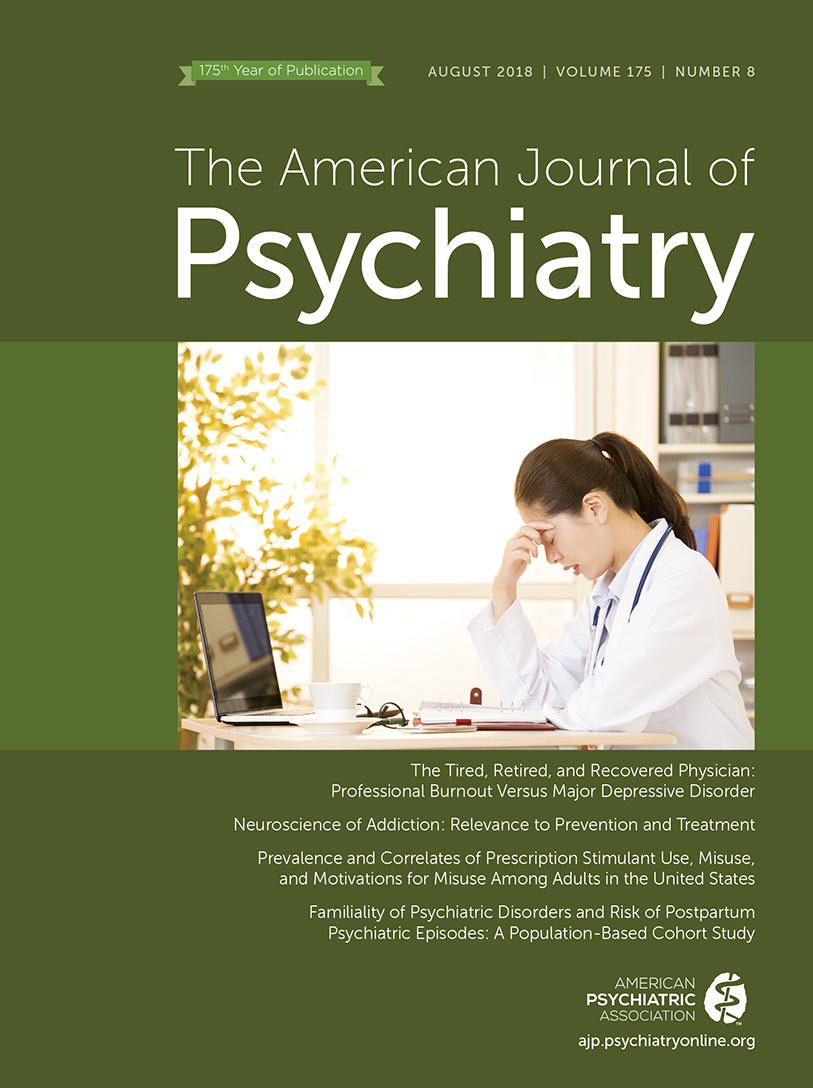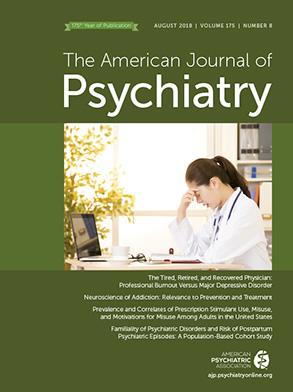Although there is no doubt about the efficacy of antipsychotics in schizophrenia (
1), more recently it has been questioned whether the long-term prophylactic use of antipsychotics does more harm than good. Specifically, questions have been raised on the safety of antipsychotics, their effect on brain structure, and even their usefulness in preventing relapse and rehospitalization (
2). Some of this controversy was initiated by studies suggesting that the tapering or actual discontinuation of antipsychotics is not harmful and improves functional outcomes in a subgroup of schizophrenia patients (
3). These data were mostly based on pragmatic small trials with some methodological problems, such as the unblinded tapering of medication and decisions made by the physicians instead of a protocol (e.g.,
4). Moreover, these studies were often not restricted to patients with schizophrenia but included patients with other psychotic disorders, leading to unwarranted extrapolations on the use of antipsychotics in schizophrenia, mistakenly equalizing psychosis with schizophrenia (
5). Indeed, the evidence that the balance of antipsychotic treatment in schizophrenia is negative—be it in preventing relapse, in physical health, or in brain structure—has been found wanting (
6).
However, despite the availability of antipsychotics for over half a century, some major, highly clinically relevant, issues have remained unaddressed. One of these is whether antipsychotics (still) provide benefit after the illness has progressed for many years. In fact, it has often been suggested that the prophylactic benefit of antipsychotics diminishes, or will be less needed, in the later stages of the illness—although not on the basis of any relevant studies. Indeed, most guidelines only make recommendations for continuation of treatment for the first 5 years of illness (
7).
In this issue of the
Journal, Tiihonen et al. (
8) address two highly relevant questions in that regard. First, is antipsychotic prophylaxis still needed after the first 5 years of illness, even in patients who have been doing well? Second, what is the effect of antipsychotics on mortality in patients with schizophrenia who have been followed from their first episode? The latter question is especially relevant in view of the claims that continuous use of antipsychotics may increase mortality among schizophrenia patients (
2).
The Tiihonen et al. study is unique in that it selected, from the nationwide Finnish database of over 23,000 patients who had their first hospitalization for schizophrenia during the period of 1996–2014, those who had not taken any medication prior to that time. This sample, an antipsychotic-naive group of more than 8,700 patients, was followed in the database for a maximum of 20 years. By linking hospital admissions to the (also nationwide) medication registry, the authors could address the question of whether discontinuation of medication after the first episode was related to rehospitalization or death (which they defined as “treatment failure”). Because of the link with the medication registry, the authors were able to relate rehospitalization or death to the duration of previous continuous treatment. In other words, they explored the relationship between duration of treatment after the first episode and subsequent risk of relapse.
Over the entire follow-up period, the risk of hospitalization increased after discontinuation of antipsychotics. That finding is not new (
6). What
is new is the counterintuitive finding that the risk of relapse increases in proportion to the duration of prior treatment: the lowest risk of rehospitalization was observed for patients using antipsychotics continuously followed by patients discontinuing antipsychotics immediately after discharge from their first inpatient treatment (a relative risk of 1.63). The risk increased sevenfold when the period of prior treatment had been 5 years or longer. Indeed, the longer the duration of treatment, the higher the risk for relapse after discontinuation of antipsychotic medication after the first episode.
The study is important in another aspect. Although the finding that antipsychotics reduce mortality is not new (
9), this is the first study to use longitudinal data from first-episode antipsychotic-naive patients. To address the question on mortality, the cohort of 8,700 first-episode patients was split into those who never used medication (N=3,217) and those who did (N=4,217) upon discharge from their first hospitalization. The patients who were discharged on antipsychotics were again subdivided into those who discontinued early, defined as within 1 year of hospitalization, and continuous users (until end of study or “treatment failure”). The risk of death was more than 200% higher in the nonusers than in those who continued taking antipsychotics from their first hospitalization. For the patients who discontinued antipsychotics within 1 year, the death rate was 174% higher than in those who continued taking antipsychotics.
It is important to emphasize that this study, for good reasons, was restricted to patients with (first-episode) schizophrenia. The results should not be extrapolated, as is often erroneously done (
10), to all psychotic disorders. Some may argue that the relationship between duration of treatment and risk for relapse on medication discontinuation is related to dopamine receptor hypersensitivity—that is, that patients who have been treated for longer periods develop hypersensitive receptors, and when antipsychotics are discontinued, they will relapse (
2). However, as the authors indicate, most of the relapses did not occur within the first 6 months after discontinuation of antipsychotics but much later. The relapses due to dopamine receptor hypersensitivity are expected to occur fairly soon after discontinuation of antipsychotics.
This study may help close the debate on the risk-benefit ratio of antipsychotics in schizophrenia: the results unequivocally indicate that antipsychotics substantially decrease, not increase, the risk of death after the first episode and that continuous antipsychotic treatment in first-episode patients materially decreases the risk of relapse, especially in the long term. Because this study included only medication-naive schizophrenia patients, the clinical usefulness and relevance of the data were meaningfully enhanced, because it is at that moment in the illness that the physician needs to make the difficult decision to treat, and for how long. This decision has been made easier by the Tiihonen et al. study. As the authors summarize, “long-lasting continuous antipsychotic treatment is beneficial for the majority of patients with first-episode schizophrenia”—a message that is as clinically relevant as it is timely.

